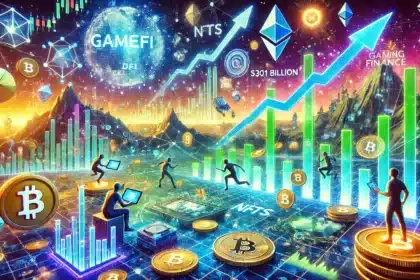In a bold and unexpected move, Hamster Kombat rejects venture capital numerous offers from leading crypto firms. This decision has sent shockwaves through the Web3 gaming industry, as the game—already a sensation with over 300 million users—opted to maintain its creative independence. By rejecting these offers, Hamster Kombat is asserting its commitment to a player-focused approach rather than succumbing to external financial pressures.

Hamster Kombat Rejects Venture Capital – A Bold Declaration
The decision which made Hamster Kombat rejects venture capital is a notable deviation from the norm in the crypto-gaming sector. Many blockchain-based games have leveraged venture funding to fuel their growth and development. However, Hamster Kombat’s team has publicly stated that they have “turned down every single one” of these offers. The rationale behind Hamster Kombat’s rejection of venture capital is to preserve the game’s player-centric philosophy, which emphasizes in-game achievements over financial investment.
The team’s stance on rejecting venture capital is designed to ensure that player interests remain at the forefront of their development strategy. Instead of aligning with external investors whose goals might not always match the core values of the game, Hamster Kombat is committed to rewarding players based on their in-game contributions rather than their financial input. This approach underscores a significant shift in how games are developed and funded in the Web3 space.
Strategic Financial Moves: Hamster Kombat Rejects Venture Capital
Part of Hamster Kombat’s strategy includes the introduction of the HMSTR coin, with a planned allocation of 60% for player reserves and the remainder for liquidity, ecosystem development, and in-game rewards. This distribution plan highlights the game’s dedication to prioritizing player benefits over investor returns. As Hamster Kombat rejects venture capital offers, Hamster Kombat is positioning itself to better align its financial strategies with its player-first ethos.

The HMSTR coin is anticipated to play a crucial role in the game’s future, and the upcoming airdrop has been dubbed “the largest in crypto history.” This monumental event is set to capture widespread attention within the cryptocurrency community, further bolstering Hamster Kombat’s position as a leader in Web3 gaming.
Hamster Kombat Rejects Venture Capital: The Larger Picture
Hamster Kombat’s decision to reject venture capital has broader implications for the cryptocurrency and gaming sectors. The game’s rapid growth to over 300 million users has attracted significant interest from various industry leaders, including Pavel Durov, founder of Telegram. Durov has praised Hamster Kombat as a prime example of how blockchain technology can engage users and promote the benefits of digital assets.
In addition to this, Bybit, a major cryptocurrency exchange, has listed HMSTR for premarket trading on its OTC platform. This listing represents a significant milestone for Hamster Kombat, allowing users to acquire the coin before its official release on mainstream markets. The OTC listing may influence the eventual trading price, reflecting the ongoing developments in the token’s journey from concept to market presence.
Challenges and Security Measures: Hamster Kombat Navigates the Risks
Despite its impressive trajectory, Hamster Kombat is not without its challenges. The game’s burgeoning popularity has unfortunately attracted scammers targeting its community with fake HMSTR airdrops. In response, the Hamster Kombat team has actively warned its users via Telegram, emphasizing the importance of vigilance against fraudsters claiming to sell unissued tokens.

This situation underscores the need for robust security measures and user education in the Web3 gaming ecosystem. As Hamster Kombat continues to grow, safeguarding its user base from fraudulent activities will be crucial to maintaining its reputation and player trust.
Conclusion: A New Paradigm for Web3 Gaming
The decision that made Hamster Kombat rejects venture capital offers represents a watershed moment in Web3 game development. This player-centric model, while still evolving, shows promise as an alternative to traditional investment strategies. The industry will be closely watching how Hamster Kombat’s approach impacts its future and whether it can sustain its growth trajectory while staying true to its core values.
As Hamster Kombat rejects venture capital offers, it may very well set a new standard in the Web3 gaming space. If successful, this approach could reshape how blockchain-based entertainment is developed, emphasizing user experience and community engagement over conventional financial models. TheBITJournal will continue to provide insights into these transformative developments, keeping you informed about the evolving landscape of digital assets and gaming innovations.





























